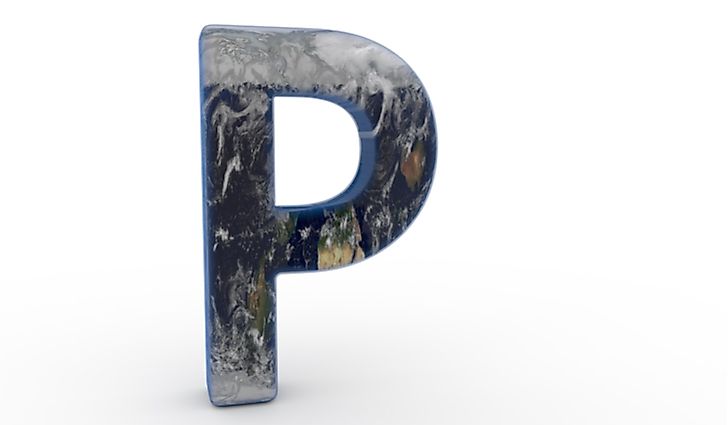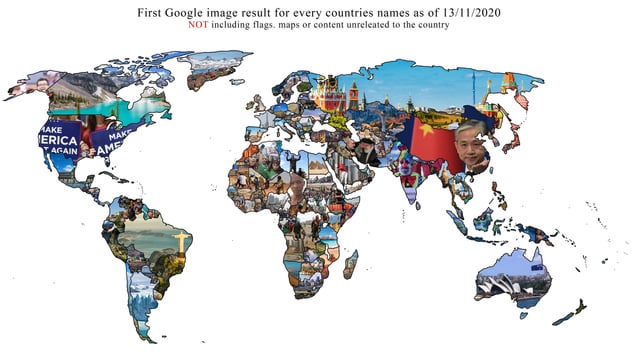The country names are the names given to separate geographical territories recognized as independent states. Countries are distinct regions acknowledged as independent entities with unique names.
Each country’s name represents its cultural, geographical, and political identity. These names have evolved over time, influenced by historical events, indigenous languages, and colonial legacies. From well-known countries like the United States and China to lesser-known nations like Tuvalu and Comoros, each name carries significance and tells a story about a specific region’s rich heritage.
The country names often reflect the language spoken by the majority of the population, highlight natural features or landmarks, honor influential figures, or encompass significant historical events. Understanding the origin and meaning behind country names offers valuable insights into the diverse world we live in and the connections between different cultures and societies.
The Origin And Evolution Of Country Names
The origin and evolution of country names have a fascinating historical background. Geography plays a significant role in shaping these names. Many country names reflect their landforms or geographical features. For example, India derives its name from the Indus River, and Maldives comes from the Sanskrit word “Maladvipa” meaning “garland of islands.”
The Literal And Symbolic Meaning Of Country Names
The translation of country names often provides insight into the literal and symbolic meaning behind them. Country names can be derived from various sources such as the geographical features, historical events, cultural aspects, and even mythological beliefs. For example, the name “China” originates from the Qin Dynasty, while “India” is derived from the River Indus. These translations reveal the connection between the name and the significance it holds for the country.
Furthermore, country names can also carry deep symbolism and representation. They can reflect the values, traditions, and aspirations of a nation. For instance, “United States” signifies the unity of states that form the country, while “Australia” represents the southern land. These symbolic associations have a profound impact on the national identity and pride of its citizens.
Moreover, the historical significance of country names cannot be overlooked. They often reflect the colonial or historical influence on a nation. For example, many countries in Africa bear names influenced by their colonial rulers. These names serve as reminders of the past and the struggles faced by these nations for independence and self-determination.
The Length And Complexity Of Country Names
The length and complexity of country names vary greatly around the world. Let’s explore some of the longest and shortest country names on the planet, as well as some of the most complex ones.
The Longest Country Names In The World
One of the longest country names in the world is the United Kingdom of Great Britain and Northern Ireland. Other contenders include the Federative Republic of Brazil and the Republic of Côte d’Ivoire.
The Shortest Country Names In The World
On the other end of the spectrum, we have countries with short names like Peru, Chad, and Greece. These names are brief and don’t take up much space when written or pronounced.
The Most Complex Country Names
When it comes to complexity, some countries have names that are challenging to spell or pronounce. For example, the People’s Democratic Republic of Laos and the Democratic People’s Republic of Korea have relatively complex names.
The Usage And Adaptation Of Country Names
The usage and adaptation of country names have evolved over time, reflecting the changes in languages, cultures, and political landscapes.
Country names undergo modifications, both in their original form and when localized in different languages. This process is influenced by factors such as pronunciation, cultural norms, and historical context.
When it comes to changes and adaptations of country names, one aspect to consider is the localization in different languages. Not all country names are directly translated, but rather adapted to suit the phonetic and grammatical rules of the target language. For example, “Germany” becomes “Deutschland” in German.
Another important aspect is the transliteration and transcription of country names. This is particularly relevant when dealing with languages that do not use the Latin alphabet. Transcribing a country name involves representing its sounds using the alphabet of the target language, while transliteration entails preserving the original sounds in a different script. For instance, “中国” is the transliteration of “China” in Chinese characters.
These adaptations and modifications of country names emphasize the dynamic nature of language and culture, and highlight the interconnectedness of the global community.
The Impact Of Country Names On National Identity
The impact of country names on national identity is a topic of great significance. The emotional connection to country names plays a crucial role in shaping one’s cultural identity. Countries derive their names from various sources such as geography, history, or cultural heritage. These names hold deep meaning and symbolism, evoking a sense of belonging, pride, and loyalty among their citizens.
Country names are not merely labels, but powerful representations of a nation’s history, values, and aspirations. They are often associated with heroic tales, significant events, or legendary figures, which further strengthen the emotional bond between the people and their country. The mention of a country’s name can evoke strong emotions, stirring up national pride and a sense of unity.
Cultural identity is closely intertwined with country names. They serve as a reminder of shared traditions, customs, and language, fostering a collective identity that distinguishes a nation from others. The importance of country names in shaping national identity cannot be overstated. They contribute to the preservation and celebration of cultural heritage, enabling individuals to connect with their roots, and reinforcing their sense of national belonging.

Credit: www.worldatlas.com
The Stereotypes And Preconceptions Associated With Country Names
The stereotypes and preconceptions associated with country names have a significant impact on our perception and understanding of different nations. Historical events play a crucial role in shaping the names of countries, reflecting the influences of colonization, treaties, or significant cultural shifts. These historical events contribute to preconceived notions and stereotypes associated with particular country names.
Furthermore, the media and popular culture heavily influence our perception of country names. The portrayal of countries in movies, television shows, and news articles can reinforce stereotypes or challenge them. Popular culture often focuses on specific characteristics or cultural aspects of a country and perpetuates certain narratives.
It is essential to be mindful of these influences and stereotypes when discussing and learning about different countries. By examining the historical context and understanding the role of media and popular culture, we can aim to develop a more nuanced and informed understanding of various nations and challenge preconceived notions associated with their names.
The Disputes And Conflicts Over Country Names
The disputes and conflicts over country names have been a subject of controversy, with various nations and individuals having differing opinions and perspectives. These disputes often arise due to historical, political, and even diplomatic reasons, making them significant on multiple levels.
One particular aspect of country name disputes is the controversial changes made to country names. These changes can have far-reaching implications in terms of diplomatic relations between nations, as well as their standing in the international community.
Moreover, country name disputes also delve into the political and historical significance of specific names. The naming of a country can reflect its cultural heritage, sovereignty, and national identity, often leading to passionate debates and clashes of opinions.
Ultimately, the fervor surrounding country name conflicts highlights the deep-rooted emotions and interests at stake. A thorough understanding of these disputes is crucial in comprehending the complex dynamics and intricate histories of nations.
The Official Recognition And Acceptance Of Country Names
The official recognition and acceptance of country names play a crucial role in international relations. International organizations such as the United Nations, World Bank, and International Monetary Fund play a significant role in recognizing country names. These organizations act as important platforms for countries to gain legitimacy and establish their identity in the global community.
Political recognition of country names has a significant impact on their international standing. It determines whether a country is seen as a sovereign entity and has the right to represent its people in international forums. Non-recognition or disputed recognition can lead to conflicts and diplomatic tensions.
Legally, the recognition of country names has implications for issues such as sovereignty, territorial disputes, and diplomatic relations. It affects the rights and obligations of states under international law, the ability to enter into treaties, and access to international organizations and their benefits.
Overall, the recognition and acceptance of country names by international organizations and political entities have far-reaching consequences for the legitimacy and status of countries in the international arena.
The Evolution And Adaptation Of Country Names In The Digital Age
The influence of online communities on changing country names can be seen as a notable aspect of the modern world. With the rise of the internet and social media, people from different parts of the world are interconnected like never before. This has created a platform for individuals to voice their opinions and influence various aspects of society, including country names. Online communities often propose alternative names based on historical or cultural reasons, challenging traditional conventions.
Another factor impacting country names is globalization. As countries become more interconnected economically, politically, and socially, they face both challenges and opportunities. Globalization has led to the recognition of new nation-states and regions, resulting in the emergence of new country names.
| Challenges | Opportunities |
|---|---|
| Loss of cultural identity | Increased visibility and recognition |
| Controversies and conflicts | Enhanced economic cooperation |
| Resistance to change | Improved global understanding and cooperation |
Technology has also played a significant role in shaping the perception of country names. With the digital age, information about countries is easily accessible to a global audience. This accessibility has changed the way people perceive and interact with country names. The use of technology allows for virtual travel experiences and facilitates cultural exchange, leading to a more nuanced appreciation of country names.
The Emerging Trends And Innovations In Country Naming
The world of country naming has seen a surge in emerging trends and innovations. Creative and unconventional approaches to country naming have become increasingly popular, resulting in unique and eye-catching names. These names have the ability to capture attention and generate interest, making countries stand out in a crowded global landscape.
Branding and marketing play a significant role in the naming process, shaping the perception of a country. A well-thought-out name can evoke positive emotions and associations, attracting tourists, investors, and businesses. The naming strategy should align with the country’s values, culture, and aspirations, creating a strong brand identity.
Looking ahead, the future outlook for country names is optimistic. With globalization and the rise of digital media, there are endless possibilities for innovative naming techniques. The digital age allows for easier dissemination of information, enabling countries to create and promote their unique identities in a more targeted and effective manner.
Frequently Asked Questions On The Country Names
What Are The Most Populous Countries In The World?
China and India are currently the most populous countries in the world, with over 1 billion people each. Other highly populated countries include the United States, Indonesia, Pakistan, Brazil, Nigeria, and Bangladesh.
Which Country Has The Largest Land Area?
Russia is the largest country in the world in terms of land area. It covers a vast territory spanning across Europe and Asia, with a total area of approximately 17. 1 million square kilometers.
What Are Some Examples Of Island Countries?
Some examples of island countries include Japan, the United Kingdom, Australia, Indonesia, New Zealand, and the Bahamas. These countries are entirely or mostly composed of islands and often offer unique landscapes and cultures.
Conclusion
The significance of country names goes beyond mere identification. It reflects a nation’s history, culture, and identity. As countries constantly evolve and redefine themselves, the importance of understanding and appreciating their names cannot be underestimated. From the traditional to the unique, each country name carries its own story, contributing to the rich tapestry of our global society.
Exploring these names allows us to connect with the world in a profound and meaningful way. Embrace the beauty and diversity of country names, and discover the magic they hold.




